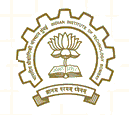
What's Control and Computing all about?
Author: Krishnan S
M.Tech-CC, 2nd Year
krishnans[at]ee.iitb.ac.in
About this document
There is a common doubt about what exactly goes on in Control and Computing, and where
does CC, as a specialization find its place among the academic, research and industrial communities. Having spent a year in this environment, especially after spending four good years in
the industry, it is possible for me to bring out a picture. This need not be accurate, but would
be good enough to clear many doubts about CC. This document has been written with very
little personal perspective imposed, though my understanding abilities are surely biased with
my personal perspectives. The information below could and would require elaboration, which
can be discussed in person with the author.
The Specialization dilemma
"Specialization means more than just making things work". Before getting into any details
about CC, the first aspect that needs to be appreciated is, CC is a Post graduate specialization.
Hence there is a natural expectation that, students who complete it, would not just have
multitude of skills, but also a concrete understanding of why, what, how of those skills. It is an
unfortunate (?) truth that this in-depth understanding requires a fairly rigorous mathematical
ability and not just handwaving arguments to 'get things work'. For that matter, almost all
the Post graduate specializations (in Engg.) offered by reputed universities around the world,
require students to develop the appropriate mathematical abilities, to be able to appreciate the
workings of their specialization. If all you are interested is just to make things work and not to
dwell deeper into the whys and hows, a UG degree is more than enough.
Where does CC fit in EE and IITB in general
CC is a pseudo interdisciplinary course in EE department. It provides the frameworks and
the necessary tools to solve a number of problems that arise in EE research. These are in the
form of Computational tools, Optimization tools, Theoretical frameworks for control, circuit
simulation etc. CC is similar to the very many control groups in various departments of IITB,
viz, Chemical, Mechanical, Aerospace, apart from Syscon Interdisciplinary program. Each of
these different groups work on dynamics and control problems that arise in their respective
areas and provide the necessary tools and frameworks to solve them, similar to what CC does
to EE.
CC Courses' Conundrum
A common concern raised by students is, CC courses have too much of abstract mathematics,
even in the core electives. The straight answer for that question is, CC's research areas are
largely into Applied Mathematics. But among the courses being offered, 5 out of the 6 core
theory courses are essential in pursuing anything concrete in Control and Computing and many
other fields. Behavioural Theory of Systems is the only core course which is of a di�erent kind,
introducing a di�erent perspective of theoretical framework to the students. For instance, Linear
Algebra can be said to be THE most important tool for any student pursuing work in control,
computing, signal processing, coding, communication systems, optimization etc. Linear Algebra
gives an important abstract framework for rigorous work in all the above areas. Without such
a rigorous framework all that can be done is to be happy to see things work and not really
understand 'why' it works.
CC's place in Academics
The rigorous work of applied mathematics research in CC is comparable to anywhere in the
world. A post graduation in CC gives a good platform to pursue research work in India (especially in EE itself) or abroad, in various fields, including, Control, Computing, Coding, Signal/Image Processing, Nonlinear dynamics, Optimization, Circuit/System simulation etc. In
fact, with a little bit of extra effort and inclination, the skills attained would be good enough
to do contributions to the fields of communications, operations research, theoretical computer
science and the likes.
CC's skills in Research
A number of CC students, both PhD and MTech, work with research organizations in India and
abroad, in government/private organizations, or academic institutions. An ideal CC students'
skill could be good enough to be used in non-academic research focuses like coding theory,
supercomputing, control systems, signal processing, Large circuit simulations etc. However any
research aspirations would not be possible without additional skills specific to the areas in the
form of appropriate courses and self learnings, apart from possibly projects.
CC's Place in Industry
A serious control enthusiast would be able to take appropriate Modeling, Control courses in mul
tiple departments (Syscon, Mech, Aero, Chem) and be able to pursue work in a number of industries as a Control System Engineer. Process Control, Process Automation, Aircraft/Spacecraft
control, Robotics are some of the areas where they can look to explore. CC students with the
necessary interests (in the form of courses etc.) and software skills added could find places in a
number of EE related organization working in areas of Signal/Image processing, System Design,
Communication codes etc. CC students with the necessary optimization skills could also find
place in financial sector organization as quantitative analyst.
Epilogue
The above is a small writeup to break shackles, but would require a lot more elaboration. The
author welcomes the interested students for discussion and to get further direction to appropriate
experts in some of the above aspects.

